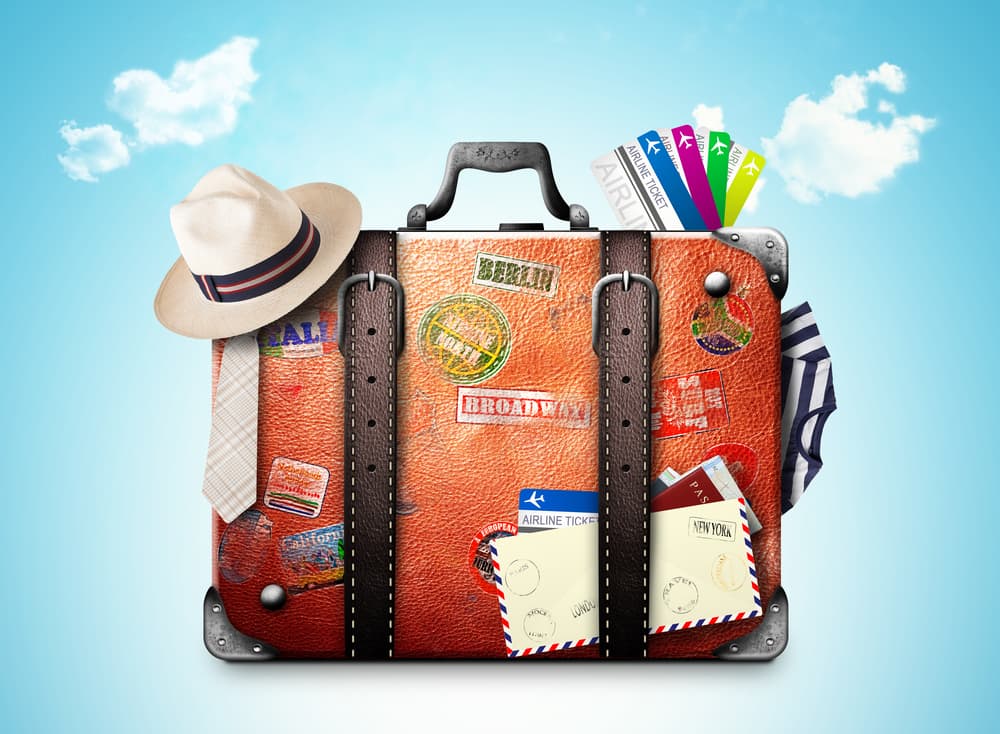Top Things To Consider When Travelling Abroad For The First Time As An Elderly Traveller
By considering these top factors, elderly travellers can embark on their first international adventure with confidence and peace of mind
By considering these top factors, elderly travellers can embark on their first international adventure with confidence and peace of mind

First Time Travelling Abroad
Embarking on international travel for the first time as an elderly traveller can be an exciting yet daunting prospect. However, with the right preparation and consideration, older adults can enjoy a safe and rewarding experience abroad. Here are the top things to keep in mind when travelling internationally as an elderly traveller.
Also Read: Unforgettable Experiences For Elderly Travellers In Switzerland
Advertisement
One of the most important factors to consider when travelling abroad as an elderly person is your health and medical needs. Before your trip, it’s crucial to consult with your healthcare provider to ensure you are fit to travel and discuss any necessary precautions or vaccinations. Make sure to obtain a comprehensive list of your current medications, including both generic and brand names, as well as your medical history. This information can be invaluable if you need to seek medical attention while abroad. It’s also essential to research the healthcare system and accessibility in your destination country. Understand whether your current health insurance plan will cover you overseas, and consider purchasing additional travel insurance that includes medical coverage and emergency evacuation. This can provide peace of mind and financial protection in the event of a medical emergency.
Mobility and accessibility are crucial considerations for elderly travellers. Research the accessibility of your destination, including the availability of wheelchair-friendly facilities, elevators, and ramps. Many hotels, museums, and tourist sites now offer accommodations for travellers with mobility challenges, so be sure to inquire about these services when booking your trip. If you use a wheelchair or mobility aid, make sure to plan ahead and communicate your needs to your airline, hotel, and tour operators. This will ensure that the necessary arrangements are made to facilitate your travel and sightseeing experiences.
Advertisement
Also Read: A Senior Traveller’s Guide To Ladakh
Getting around in a foreign country can be daunting for elderly travellers, so it’s essential to plan your transportation carefully. Consider the availability and accessibility of public transportation, such as buses, trains, and subways, in your destination. Alternatively, you may want to arrange for private transportation, such as taxis or rideshare services, to make getting around more comfortable and convenient.When navigating your destination, be sure to have a map or GPS device on hand, and familiarize yourself with the local landmarks and street names. This will help you feel more confident and independent as you explore your surroundings.
Navigating cultural and language barriers can be a challenge for elderly travellers, especially if it’s their first time visiting a foreign country. Research the local customs, etiquette, and any language differences before your trip, and consider learning a few basic phrases in the local language. This can help you communicate with locals and better understand the cultural norms of your destination. Additionally, be prepared to be patient and flexible, as things may not always go as planned. Embrace the opportunity to learn and immerse yourself in the local culture, and don’t be afraid to ask for assistance or clarification when needed.
Proper packing and preparation are essential for a successful international trip as an elderly traveller. Make a comprehensive packing list that includes all necessary medications, medical supplies, and any assistive devices you may need. Ensure that your medications are in their original containers with clear labels, and carry a copy of your prescription information in case you need to replace or refill them while abroad. Additionally, consider packing items that can make your trip more comfortable, such as comfortable walking shoes, a portable mobility aid, and any necessary personal care items. Don’t forget to pack copies of your important documents, such as your passport, travel insurance, and emergency contact information, and keep them in a secure location.
Also Read: Relaxing Getaways In Uttarakhand For Elderly Travellers
Staying connected and informed is crucial for elderly travellers, especially in an emergency situation. Ensure that you have a reliable means of communication, such as a mobile phone with international roaming capabilities or a local SIM card. Research the availability of Wi-Fi and internet access in your destination, as this can be helpful for staying in touch with loved ones, accessing information, and navigating your surroundings. It’s also a good idea to register with your country’s embassy or consulate in the destination country, as they can provide assistance and support in the event of an emergency. Additionally, familiarise yourself with the local emergency numbers and procedures in case you need to seek medical attention or report an incident.
Advertisement
Europe offers a wealth of experiences and adventures for elderly travellers, but careful planning and preparation are essential for a successful trip
The city's age-friendly infrastructure, diverse attractions, and senior-centric activities make it an ideal destination for those seeking a travel experience that caters to their unique needs and preferences
These senior-friendly historical destinations around the world offer accessibility, discounted options, and enriching experiences that cater specifically to older travellers
Get all the latest stories delivered to your inbox
Advertisement
Get all the latest stories delivered to your inbox